Pastor’s Word

Steering a Steady Course
By Rev. Racquel Ray, Associate Minister of Congregational Life
Today’s weather report reminds me of an important leadership tenet, “Mariners should consider altering plans to avoid possible hazardous conditions. Remain in port, seek safe harbor, alter course, and/or secure the vessel for severe wind and waves.” In times of transition or turbulence, it is good practice to steer a steady course. Now is not the time to make radical changes.
Our church was looking forward to the new governance structure and the “Year of Engagement” in 2025. Instead, here we are on the eve of June in the middle of a leadership transition. Some of our governance structures are still incomplete, engagement less than what we dreamed, uncertainty ahead. Now is the time to pause.
Next week, our Governing Board and Ministry Coordinators will spend some retreat time team-building and visioning. We are fortunate to have Sarah Whiting with us to facilitate a workshop on “Thriving in Transition”. Sarah and her family have been regular guests in our congregation for several years. She brings deep expertise as a facilitator, strategist, and coach for organizations working to innovate, build alignment, and live out their mission more fully.
As we honor our history, assess our present, and envision our future, we are reminded to remain in port (keep coming to church), seek safe harbor (continue to pray), alter course (pivot as needed), and secure the vessel (keep routines consistent) to remain prepared for any ‘hazardous conditions’.
I shared with our Deacons this week a helpful blessing written by Jan Richardson.

STAY by Jan Richardson*
I know how your mind
rushes ahead
trying to fathom
what could follow this.
What will you do,
where will you go,
how will you live?
You will want
to outrun the grief.
You will want
to keep turning toward
the horizon,
watching for what was lost
to come back,
to return to you
and never leave again.
For now
hear me when I say
all you need to do
is to still yourself
is to turn toward one another
is to stay.
Wait
and see what comes
to fill
the gaping hole
in your chest.
Wait with your hands open
to receive what could never come
except to what is empty
and hollow.
You cannot know it now,
cannot even imagine
what lies ahead,
but I tell you
the day is coming
when breath will
fill your lungs
as it never has before
and with your own ears
you will hear words
coming to you new
and startling.
You will dream dreams
and you will see the world
ablaze with blessing.
Wait for it.
Still yourself.
Stay.
*This blessing appears in Jan’s book The Cure for Sorrow: A Book of Blessings for Times of Grief. It appears also in her book Circle of Grace: A Book of Blessings for the Seasons.
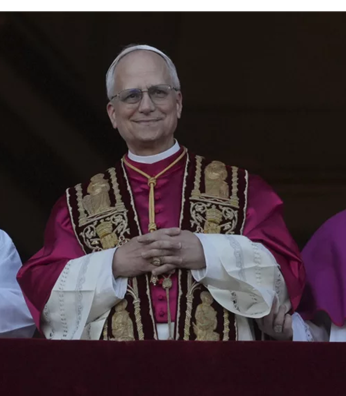
A New Beginning
By Rev. Racquel Ray, Associate Minister of Congregational Life
I just heard the news. Our Catholic Church cousins have elected a new Pope. According to NPR news, U.S. Cardinal Robert Prevost has been elected pope, the first time an American has led the Roman Catholic Church. Provost, 69, chose the name Pope Leo XIV.
It is with celebration that the church welcomes another Spiritual leader. And, American Catholics are feeling a sense of pride and gratitude as well as a renewed sense of call and commitment to their faith.
As a faith leader, I am sending prayers of fortitude, wisdom, and discernment for Pope Leo XIV. And I celebrate with Americans around the globe in acknowledging what an honor, privilege, and responsibility this moment holds. Living in Rhode Island, graduating from Providence College, and serving a congregation with several previously Catholic members, I join with global Catholic cousins and understand what a historic moment this is.
No matter your opinions on church denominations and patriarchal traditions, I think we can all acknowledge that the Catholic Church has done a superb job of holding a standard for 2000 years. It is that standard, held by the Catholic Church, from which all Protestant denominations deviate in degrees. Their standard enables our protest – from 1517 through this very day.
My personal theology holds a great deal of distance between Catholic Church hierarchy and patriarchy. However, I can honor their historic rhetoric and theological patristics and matristics. As the Catholic Church embraces their new leader, may we remember and honor our own church lineage trajectory which moved away from the patriarchal hierarchy. And may we share our prayers for all faith leaders as the Spirit moves among us all. Amen.

The Sun Will Still Shine
by Rev. Racquel Ray, Associate Minister of Congregational Life
The Easter story reminds us that better days are always ahead of us. When I was serving as a senior living Chaplain, one of my most endearing residents would always say, “Oh, well! Better days are coming.” No matter the difficult situation she was facing ~ and there were many in her complex medical and social-emotional history ~ she always had hope that things would get better.
As the crowd gathered on the shoreline at Osamequin Nature Preserve on Easter Sunday, the birds were riotous; the wind ebbed aided by the sheltering pines that whispered throughout the service; the resident osprey observed us in curiosity and sang along with us; and the sun rose. We could all feel the warmth and light as we watched the sun come up over the horizon.
 I know I am not alone in feeling an overwhelming sense of hope and purpose in that moment. With over fifty neighbors gathering in an outdoor ecumenical community, we shared communion with one another, communion with creation, and Communion with the Divine. Truly, we were embodying the mandate to Love God, Love Neighbor, and Love Self. We shared the Bread and the Cup and so much more.
I know I am not alone in feeling an overwhelming sense of hope and purpose in that moment. With over fifty neighbors gathering in an outdoor ecumenical community, we shared communion with one another, communion with creation, and Communion with the Divine. Truly, we were embodying the mandate to Love God, Love Neighbor, and Love Self. We shared the Bread and the Cup and so much more.
After the service a neighbor asked if we could offer outdoor services more often throughout the year. Another neighbor wept complete awe and overwhelm at the beauty of the embodied experience. And, another neighbor shared that this was their only annual church attendance because it was kinetic and accessible.
We are in a pivotal time. We are experiencing uncertainties around the world and around our common life together. It is common in times of uncertainty for people to become reactive and impetuous. It is easy to make decisions in haste when we are feeling this way. I’m reminded of Peter, warming himself by the fire and denying Christ in reaction to the woman’s inquiry, “Aren’t you one of His Disciples?”
 Times of uncertainty and change also bring opportunities! This is a time to come together, to vision, to dream, and to hope. What ministries can we resurrect? What community partnerships can we grow? How can we engage young people? How can we care for one another? How can we care for ourselves? And how can we support our church?
Times of uncertainty and change also bring opportunities! This is a time to come together, to vision, to dream, and to hope. What ministries can we resurrect? What community partnerships can we grow? How can we engage young people? How can we care for one another? How can we care for ourselves? And how can we support our church?
Inspired by that Easter Sunrise service, I’m renewed and recommitted to spending more time outside. I’m inspired to find new ways to have church outside and explore our communities’ green spaces. I’m looking forward to seeing what new ideas and inspired ministries emerge over the next few months. I’m excited about looking over that horizon to see what is dawning for our church! The sun will still shine and better days are coming.

All the time?
God is good…
All the Time!
All the time…
God is Good!
A month back, I mentioned in worship that it was about time I preached on this refrain. I went so far as to suggest making it my final sermon on April 27th.
Well, that’s not happening.
First, I was struck with a different inspiration that I felt called to share on my final Sunday. Second, I couldn’t let go of the nagging feeling that I had ALREADY preached on that now familiar litany.
And, sure enough, I have. With a small amount of digging, I was able to find my sermon entitled “God is good…All the time?” from January 15, 2023. Here is a link to it if you’d like to watch that sermon. (Please, just be sure to ignore the post-covid quarantine calico goatee I was sporting which, on camera, strangely resembled an early 1970’s Burt Reynolds mustache.)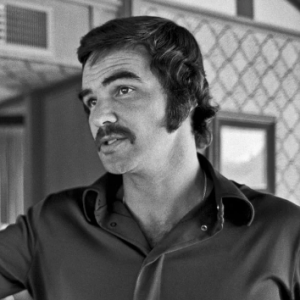
Anyway, back to the point at hand…
Since preaching on the theological quandary of whether God is good all the time was off the table, I thought I would focus my last blog on that instead. So here it goes.
The difficulty, of course, with stating that God is good all the time is that it can be hard to accept when things aren’t going well. In fact, some folks flat out reject the idea. They ask, “How can we declare that God is good at the same time that we see horrific things happening in the world, or are experiencing personal hardships in our own lives?” They just don’t see the two as compatible.
As Christians, we generally believe that God is omniscient, omnipotent, and omnipresent. In simplistic terms this means that God is all-knowing, all-powerful, and all-present. This leads to the logical argument that if God knows about our suffering, has the power to change it, and is present while it is happening, then how can we argue that God is good if we continue to keep on suffering?
If God is truly good all the time, wouldn’t a good God put an end to the suffering? Wouldn’t a good God change the circumstances that lead to our distress? Especially when that misery seems undeserved, widespread, or arbitrary? If God is truly good all the time, then why do bad things happen to good people?
This logic leads many people to believe that either God isn’t omniscient, omnipotent, and omnipresent, or quite simply, that God isn’t good. Taken to the extreme, these questions lead people to reject faith and God altogether.
Of course, the logical outlined above makes a few assumptions that are seldom addressed: namely that “good” is defined as “whatever benefits me (or someone else) best” and that we are able to clearly see and understand the depth and breadth of what is truly happening in any given circumstance.
The logic that a good God would not permit suffering assumes that we know what is good, or the greatest good, in any given circumstance. This is simply not the case.
What opened my heart to a different understanding is what I experienced in the summer of 1995.
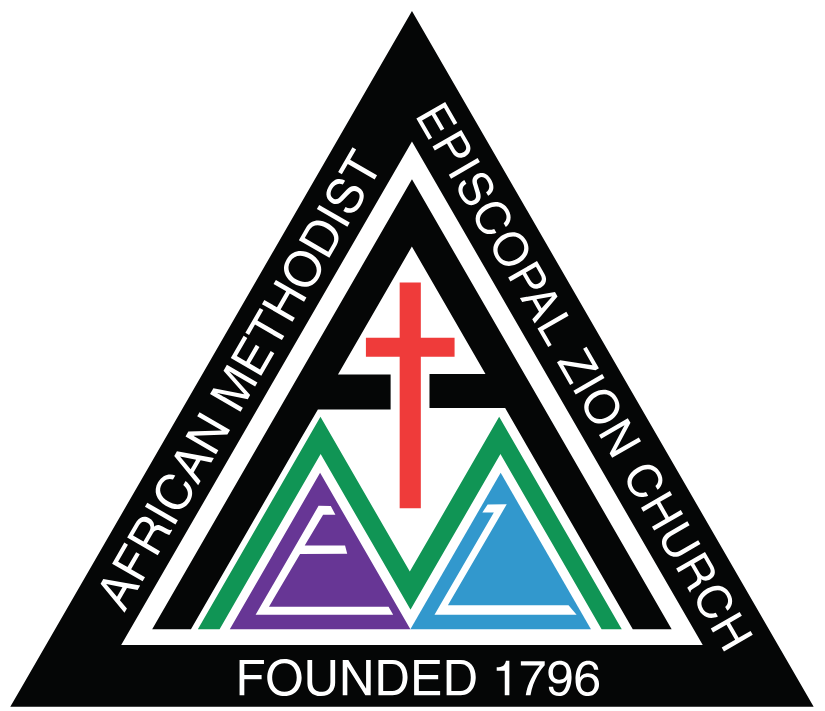 That summer I had the privilege of attending worship at an AME Zion congregation. That two-and-a-half-hour-long service impacted me in a number of ways. First was the idea that worship could last 2.5 hours and still be enjoyable. Second was the role of prayer and music in liturgy. And third was the idea that faith is often about perspective. This latter realization means that one’s faith often depends more on one’s perspective, than it does on God’s action or inaction.
That summer I had the privilege of attending worship at an AME Zion congregation. That two-and-a-half-hour-long service impacted me in a number of ways. First was the idea that worship could last 2.5 hours and still be enjoyable. Second was the role of prayer and music in liturgy. And third was the idea that faith is often about perspective. This latter realization means that one’s faith often depends more on one’s perspective, than it does on God’s action or inaction.
That service we first heard the call and refrain: “God is good…all the time…all the time…God is good.”
I later discovered that this saying had long been a tradition in the historically black church (which is the tradition that the AME Zion church is rooted in and continues to be a part of). That saying has a clear foundation in segregation, oppression, and slavery. It has been a refrain shared through ages of suffering.
If anyone has a right to complain about God’s goodness, it is those who have lived through generations of suffering and horrific abuses at the hands of others. And yet, it seemed that those who had suffered the most, and had the most to complain about, where the ones who found strength in the idea that God is good even when terrible things are happening to them and the world.
There is a power in a faith that can stand in the face of the direst oppression and still remain strong, believing that even although things look grim now, God and God’s goodness will ultimately prevail.
In fact, this is the Easter message. This is the point of the resurrection. This is the experience of 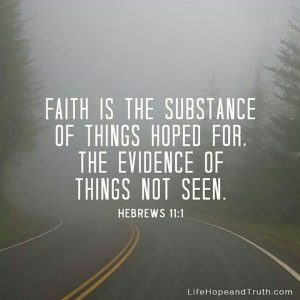 Paschal Mystery1. This is Christianity: that even in the darkest of times we have faith that God, and good, will triumph in the end.
Paschal Mystery1. This is Christianity: that even in the darkest of times we have faith that God, and good, will triumph in the end.
This is why I begin every service with “God is good…”. Not because I believe in some Pollyanna where life is wonderful all the time, but rather because I want to remind myself (and you) that even on those days, perhaps especially on those days, when life doesn’t feel wonderful, the promise remains that God will ultimately succeed, and we will overcome.
This faith is a gift. The author of Hebrews writes, “Faith is the assurance of things hoped for, the conviction of things not seen.”2 The belief that goodness will ultimately win, or that God has already won and people just don’t realize it yet, is a powerful idea. It gives us the strength to carry on when we want to quit. It reminds us that all we do makes a difference, even if we cannot see it now. And it challenges us to live into the vision of what we believe, a vision of love, equality, righteousness, and goodness.
It can be so hard to accept that God is good all the time, especially when we are hurt or hurting. But doing so reminds us that God’s goodness, God’s state of being, isn’t dependent on us and our happiness, but rather transcends it. God isn’t good because we are happy, rather we can be happy because God is good!
1 The Paschal Mystery refers to the events over three days of the suffering, death, and resurrection of Jesus, and the promise they hold offer on the redemption and salvation of humanity.
2 Hebrews 11:1 (NRSV)
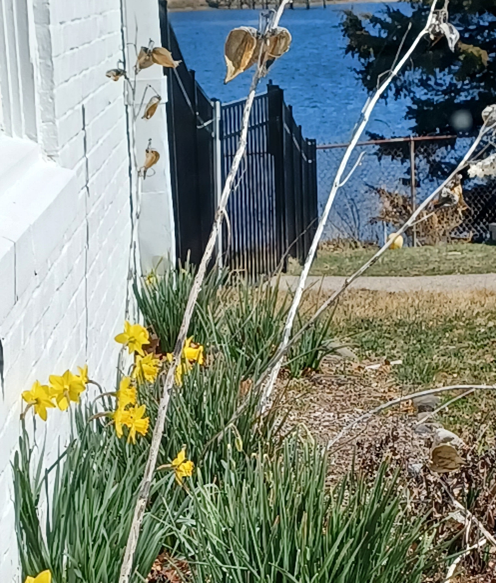
Think National, Act Local
by Rev. Racquel Ray, Associate Minister of Congregational Life
There’s a garden just outside the window of my church office which is sheltered from the harshest weather. The spot is warm and sunny and gets enough morning sunshine to interrupt the slow, gradual spring. The daffodils are defying their cousins around town and are in riotous full bloom!
These glowing yellow blossoms remind me to NOT lose hope! I recently heard a friend say, “I’m so depressed!” with all of the news, politics, gloomy weather, and general ‘unknowing’ that many of us are experiencing. Everywhere I go, no matter what the event or conversation is supposed to be about, it inevitably turns to politics. People are really worried!
 It seems to me that the church has a role to play here in our current society and our collective anxiety. We can be the voice of the prophetic. We can have a voice at Town Hall meetings, School Board meetings, Library Board meetings, the RI State House, and the national dialogue. My voice may be singular but OUR voice is hundreds! Our church may be singular but OUR CHURCHES are many. Our Association may be small but our Conference is 600 churches! What does it look like when 600 churches organize and take action?!
It seems to me that the church has a role to play here in our current society and our collective anxiety. We can be the voice of the prophetic. We can have a voice at Town Hall meetings, School Board meetings, Library Board meetings, the RI State House, and the national dialogue. My voice may be singular but OUR voice is hundreds! Our church may be singular but OUR CHURCHES are many. Our Association may be small but our Conference is 600 churches! What does it look like when 600 churches organize and take action?!
I am reminded that there is ALWAYS something that the church can do! We are the house of HOPE! Like the life-giving symbolism of my office daffodils, there is new life out there. If you are out there fighting for the marginalized – come to church for rest and renewal. If you are looking for a way to help – come to church for inspiration. Bring your friends. Bring your neighbors. Organize. Act.
Some may say, they are not anxious; everything is going just as they expected and wanted. Great! Those folks can stop reading here and contentedly pray for the rest of us who are struggling!
Some of us are anxious about the current administration and efforts to reduce spending while cutting vital programs. Some of us work in the non-profit sector where grants are no longer available. Some are connected to the federal government and are losing co-workers and questioning directives. Some are worried about social security and the future of our income.
 As a church, we can organize. Following the example of those who lead change during the Civil Rights Movement. We also can impact our community through peaceful protest, boycott, and advocacy at every level. Using the God-given gifts that we have, we can make a difference. There is a correlation between anxiety and action. When we act, our anxiety decreases and conversely anxiety can call us to action! Consider your gifts and put them to good use?
As a church, we can organize. Following the example of those who lead change during the Civil Rights Movement. We also can impact our community through peaceful protest, boycott, and advocacy at every level. Using the God-given gifts that we have, we can make a difference. There is a correlation between anxiety and action. When we act, our anxiety decreases and conversely anxiety can call us to action! Consider your gifts and put them to good use?
The Rhode Island State Council of Churches https://www.councilofchurchesri.org/ is beginning the work too. Last week, I attended a large event organized by the RISCC. Stay tuned for upcoming and ongoing events and opportunities to get involved, take action, join a larger collective voice, and be heard!
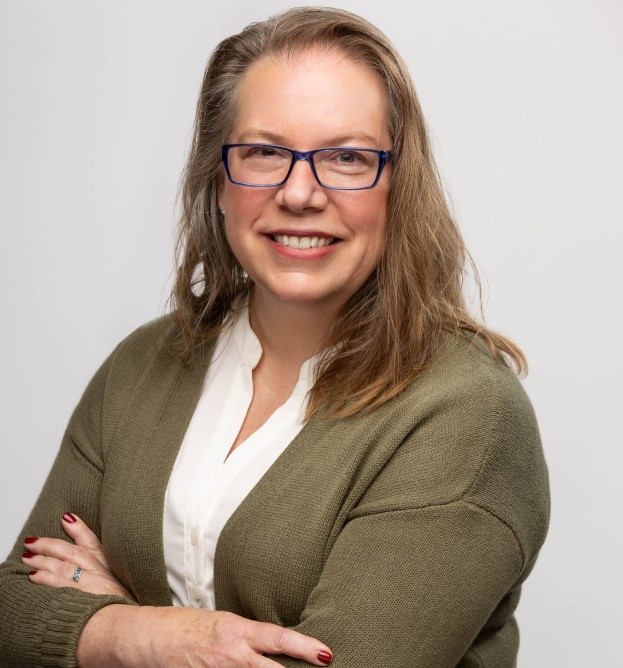
I have been invited to help with the UCC Disaster Ministries, Emotional and Spiritual Care Response Team. The ESCR joins in our denomination’s efforts “Responding to the call of our faith, UCC Disaster Ministries supports holistic community recovery, by engaging supporters, volunteers and partners to focus on preparedness, emergency relief and long-term recovery.” Disaster Ministries Contact List – United Church of Christ
When a disaster occurs, the ESCR activates a response team to be present with survivors to rebuild communities. We are caregivers to caregivers and provide ongoing support as those communities restore themselves to wellness and wholeness. The commitment may be a few days per year or a few hours per month but will allow me to use my gifts as a veteran, chaplain, and pastor to have a positive impact in our larger world. It also adds BCCUCC to the larger national community of the UCC connecting our ministries. You will hear more about UCC Disaster Ministries as we take a Moment for Mission on Sunday March 30th while considering a collection for One Great Hour of Sharing.
Think National (or Global). Act Local. Get involved in the solutions around the local community. Share your gifts, be bold, speak up. Then, come to church for renewal and strength – and HOPE. See you in Church!

So, Dale, what comes next?
by Rev. Dr. Dale Azevedo, Sr. Minister
So, Dale, what happens next?
I’ve been asked this question (in various forms) a lot over the past few weeks. It made me realize that no one really knows what my plans are post BCCUCC. A lot has evolved since I announced my retirement in January, and this week’s blog seems like a great place to share the latest news.
Where are you moving to?
Many of you already know that Elizabeth moved away at the end of January. She was offered a wonderful job in the Norwich Public Schools and is now teaching preschool as an early-learning educator. Six weeks in and she’s still alive! Each day is challenging (as only 3 to 4 year-olds can be!) but she has seen a number of successes as well.
With that in mind, Elizabeth and I purchased a home in Lisbon, CT. This is a good location for us as it is a lot closer to my mother, which was a large part of our reasoning for the move at this time. Our home is a small little ranch house located on a dead-end street. We have a little 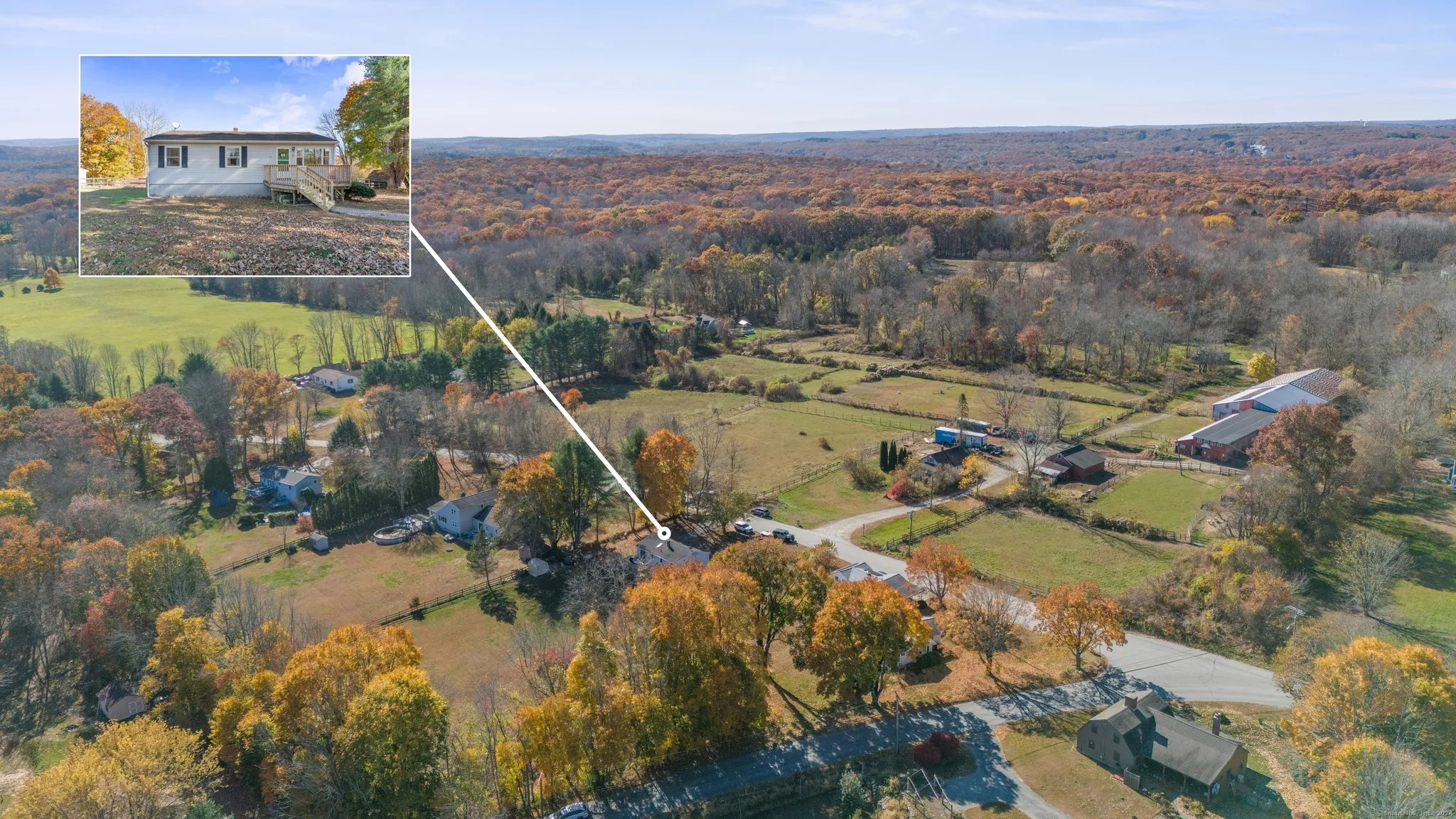 over an acre of fenced-in open space for a back yard and are situated across the street from an animal farm (predominately horses, but we’ve seen goats and a cow too!). We are also just down the street from an orchard and berry farm. This is all good as we love animals and the outdoors.
over an acre of fenced-in open space for a back yard and are situated across the street from an animal farm (predominately horses, but we’ve seen goats and a cow too!). We are also just down the street from an orchard and berry farm. This is all good as we love animals and the outdoors.
So far, we have repainted three rooms, rebuilt the kitchen from scratch, and replumbed 75% of the house. We have yet to remodel the bathroom (we’re getting help on that one), paint the common rooms, and figure out how to bring heat into the basement. This isn’t even addressing nearly everything that needs help outside! It’s a good thing we are handy, enjoy projects, and generally work really well together (even if we need to engage in a lot of compromise through the process!)
What are you doing for work?
I am excited to share that I received a job offer to do exactly what I wanted to be doing. On April 28, I will begin work as the Fund Development Specialist for the Access Community Action Agency in Willimantic, CT. As the development specialist I will work closely with donors, partner organizations, and local municipalities to procure the support and funding the agency needs to do its outreach.
 Access is a sister agency to the East Bay Community Action Program (EBCAP) here in the Riverside. It is smaller than EBCAP and focuses primarily on helping families dealing housing and food insecurity. It offers walk-in and mobile food pantries, helps with rental and utility assistance, provides affordable senior housing, and works to educate families on personal and home finances. It has an annual budget of roughly $14M (nearly all of it pass-through).
Access is a sister agency to the East Bay Community Action Program (EBCAP) here in the Riverside. It is smaller than EBCAP and focuses primarily on helping families dealing housing and food insecurity. It offers walk-in and mobile food pantries, helps with rental and utility assistance, provides affordable senior housing, and works to educate families on personal and home finances. It has an annual budget of roughly $14M (nearly all of it pass-through).
And, yes, we are concerned that the freezes enacted by the federal government threaten many of the agency’s programs. However, the need is great, and even if Access loses all its funding, it’ll have an even greater need for a Fund Development Specialist, right? Right?
What about church?
First, I’m going to breathe. Then Elizabeth and I will find a church family. There are a number of UCC churches throughout the region, each with their own personality. One of the more important decisions we’ll need to make is whether we want to join a church in our immediate community, or one that is a bit larger and more active in justice issues but further away. Fortunately, there seems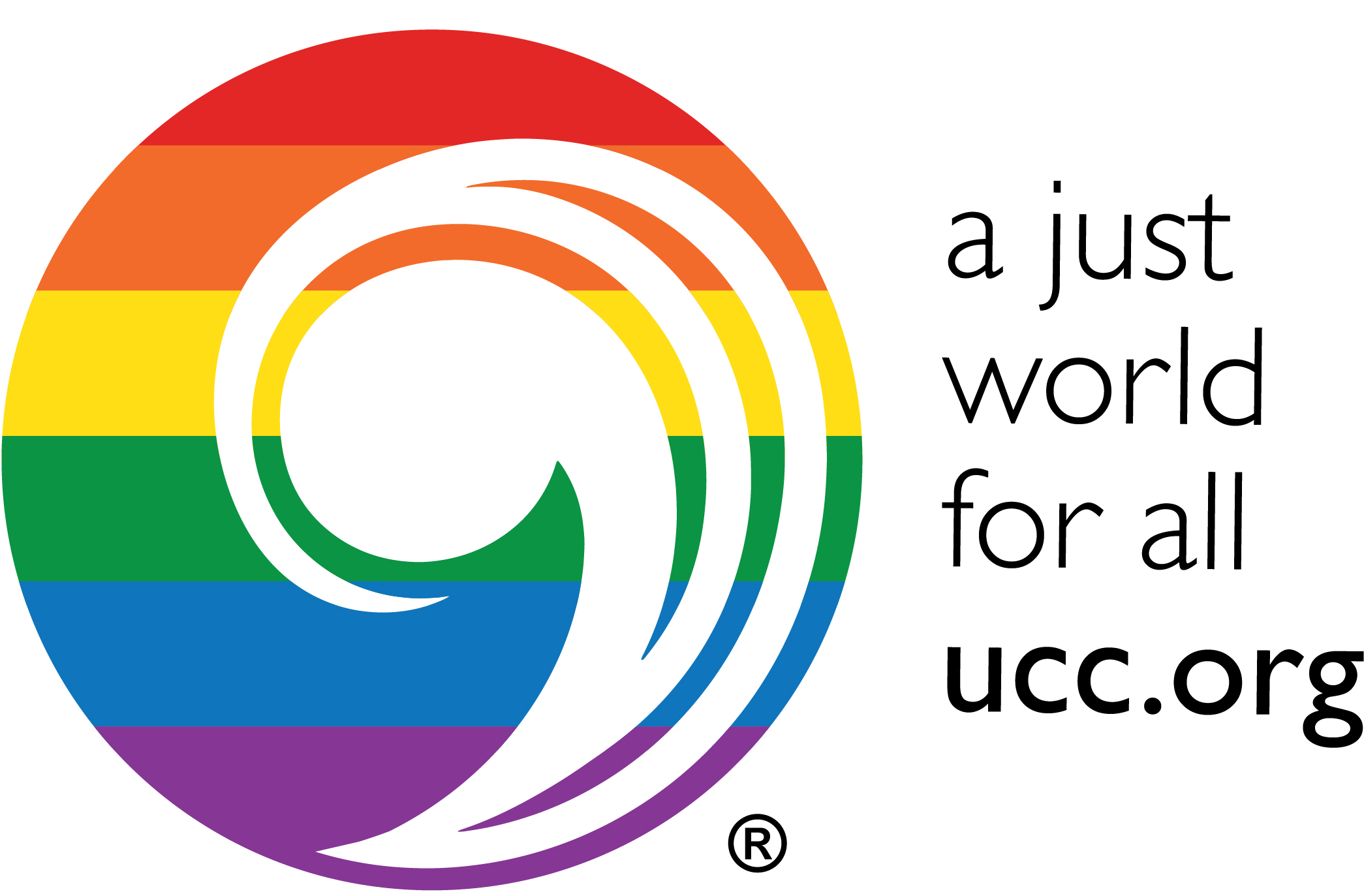 to be one pretty close that may check both boxes. We’ll see!
to be one pretty close that may check both boxes. We’ll see!
I will need to join a church because being a member of a UCC church is a requirement to maintain standing as an authorized minister in the denomination. Although I am retiring, I would still like to keep my standing. Who knows what God has in store years down the line!
Eventually, once Elizabeth and I get settled in our home and in our new church, I will probably take on some pulpit supply, preaching for other ministers while they are on vacation or away for other reasons. I think that would be fun and keep me in the practice. You know I love to tell a good story!
Anyway, that’s my plan for the future. Right now, I still have seven weeks to enjoy with you.
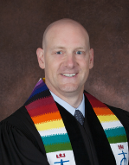
Lent and Leave-Taking
by Rev. Racquel Ray, Associate Minister of Congregational Life
The season of Lent draws us into six weeks of spiritual preparation for the celebration of Easter. Within the six weeks, the Lectionary guides us through the Old Testament readings on God’s Covenants and Promises with and to Israel. We read about the prophetic future of a Messiah and the story of Jesus’ life, ministry, torture, and death. In the background of the deep dive into the scriptural past and present, we are always awaiting the future and what the Kingdom of God may reveal in the Good News of the Gospel and the Resurrection of the Savior.
This year, as we proceed through the weeks of Lent, we are also preparing to say good-bye to a beloved minister. Rev. Dale Azevedo came to the congregation at Barrington Congregational Church in a time of renewal and hope. With years of pastoral experience, creative ministry ideas, and a deep connection to the care and keeping of the congregation, Dale began to implement the pathway towards church growth and vitality. The church began to vision its future, reimagine the team structure, and build an endowment legacy. The buildings and grounds were regenerating and so was the worship and liturgy.
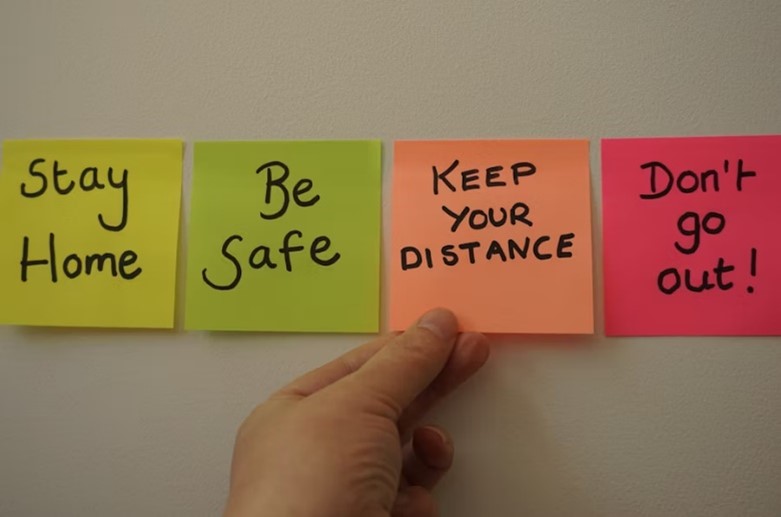 Half-way through Dale’s ministry at BCCUCC, the Covid-19 pandemic came to our doors, and everyone else’s. The dreams we had and the foundational work we did was put on hold. As the pandemic spread, illness and some division came to the congregation. We lost much loved members who were carriers of traditions and histories; those who would drive decisions and support healthy change. We also lost some members who disagreed with decisions to remain closed to in-person gatherings or to mask, socially distance, or host zoom gatherings virtually.
Half-way through Dale’s ministry at BCCUCC, the Covid-19 pandemic came to our doors, and everyone else’s. The dreams we had and the foundational work we did was put on hold. As the pandemic spread, illness and some division came to the congregation. We lost much loved members who were carriers of traditions and histories; those who would drive decisions and support healthy change. We also lost some members who disagreed with decisions to remain closed to in-person gatherings or to mask, socially distance, or host zoom gatherings virtually.
And, throughout that time, every minister struggled with the decision fatigue that came with trying to balance the mandate of God to preach the Gospel and administer the Sacraments while observing the recommended protocols around federal and state driven mandates toward societal safety. Every minister struggled with the example of Jesus to touch and heal the lepers, the blind, and the infirm and the inevitable risk of harm to our congregations, our selves, and our families if we did minister in person to the sick, dying, and deceased. Many of us chose to pull back from in-person worship, visitations, and memorials. And those decisions took a toll on all of us.
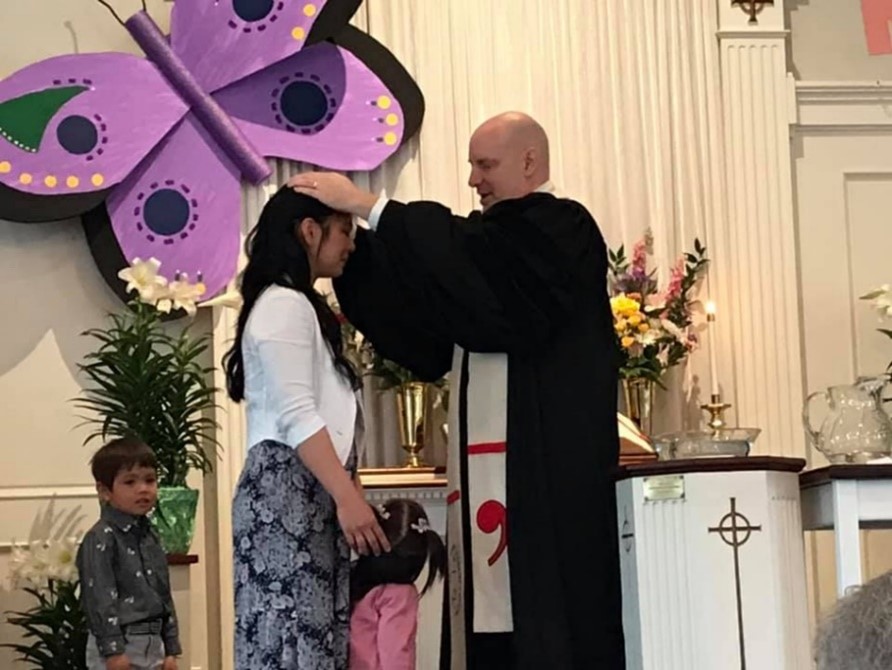
The pandemic came just as Lent began in 2020 and Lent seemed to continue for years! Easter didn’t feel like a celebration in 2020, 2021, or 2022! We continued to weigh the risk to communal wellness with and without worship or illness. And we continued to find a balance between the harm done by isolation and loneliness and illness from the virus itself.
Many congregations are still closed from that Lent five years ago. Our colleagues in ministry made difficult decisions throughout the pandemic that altered the course of their churches. Many ministers succumbed to the virus and never recovered. Some congregations continued to meet in-person to great detriment and losses to the congregation. Some lost too many members to have a future. Many lost hope!
 We continued to grow through difficult choices and challenges. Dale became adept at virtual worship and pastoral care. The Associate Ministers learned to compliment worship with virtual Confirmation classes, Bible Studies, and meetings. The congregation chose to support these ministries knowing that while it was not ideal, it was safer, and it was possible. We all learned to relate to one another in new and different ~ and virtual ways. We learned to adjust to technology. It was the Barrington Congregational Church, UCC worship services that were easily accessible to residents in skilled nursing as the virtual choir made hymns and music easy to hear, the tech team curated the visual component including easy to read lyrics, and the prayers and reflections were relevant and easy to understand. Seniors, one of the most vulnerable populations during the pandemic, were able to hear, see, understand and join in the BCCUCC worship experience even with severe hearing, vision, and cognitive difficulties. We can credit this outreach success to Dale and his ability to lead with his strengths and talents.
We continued to grow through difficult choices and challenges. Dale became adept at virtual worship and pastoral care. The Associate Ministers learned to compliment worship with virtual Confirmation classes, Bible Studies, and meetings. The congregation chose to support these ministries knowing that while it was not ideal, it was safer, and it was possible. We all learned to relate to one another in new and different ~ and virtual ways. We learned to adjust to technology. It was the Barrington Congregational Church, UCC worship services that were easily accessible to residents in skilled nursing as the virtual choir made hymns and music easy to hear, the tech team curated the visual component including easy to read lyrics, and the prayers and reflections were relevant and easy to understand. Seniors, one of the most vulnerable populations during the pandemic, were able to hear, see, understand and join in the BCCUCC worship experience even with severe hearing, vision, and cognitive difficulties. We can credit this outreach success to Dale and his ability to lead with his strengths and talents.

And, remember the Black Lives Matter gatherings during that time?! BCCUCC was the gathering place and beacon for justice and awareness. Hundreds looked to our church and people to organize and make a stand. The results changed the dialogue in our area resulting in ecumenical partnership among the Houses of Worship who now call on each other for support in difficult times.
This Lent, we will be saying good-bye to Dale whose last Sunday is April 27th, the Sunday after Easter. The process of Leave-Taking will parallel our journey through Lent. We will remember our call and covenant with Dale and the fruit of the ministry we shared. We will acknowledge the joys and successes of our time together, including the pandemic. We will acknowledge the challenges and disagreements and how we successfully navigated them. And we will begin to envision the future of our church through a lens of dreaming of what is possible. We know that we are capable of great things, even in difficult situations.
With the Resurrection and New Life just 7 or so weeks away, BCCUCC has much to process and lots of work and decisions ahead. Pray for each other and those tasked with making choices on our behalf. Voice your opinions as the congregation is the heart of the community.
I pray that we take this time to transition and to really leap into the next chapter in the life of BCCUCC with high hopes for growth, vitality, and engagement.
AMEN

“Love is a Verb”
by Rev. Dr. Dale Azevedo, Sr. Minister
Years ago, the church I was serving had a guest speaker on Laity Sunday. It was one of our lay leaders and Church School teachers. The premise and title of his sermon was pretty simple:
“Love is a verb.”
I’m not quite sure why I had never really heard that sentiment before. On the surface, it seems pretty simple and obvious. But there was something about the way Ed delivered it that made me really stop and think. Love truly is a verb.
Now, literally, “love” is regularly defined in our dictionaries as having both verb and noun uses. Love is defined as either “an intense feeling of deep affection” (noun) or “to feel deep affection” (verb). But these literal definitions from the dictionary miss the point of Ed’s sermon…and frankly miss the Christian understanding of the word entirely.
When Ed stated that “love is a verb” he was drawing a distinction between the common cultural understanding of “love” as a feeling with the more Christ-like understanding of love as an intentional action one undertakes.
For instance, Jesus challenges us to “love [our] enemies.” (Matt 5:44) It seems quite obvious to me that Jesus isn’t asking us to have deep affection for “those who persecute” us. Instead, he is asking us to take on a specific action. He asks us to pray for them. One can also surmise that he would want us to treat them with dignity and respect. More than once he asks his followers to not follow up violence with violence. Jesus has the capacity to see the dignity and value in all people, and therefore he has compassion for them, even those who nailed his hands to the cross. (Luke 23:34)
I don’t think it is too much of a stretch to say that the Biblical understanding of love is spelled out in the Golden Rule, “Do unto others as you would have them do unto you.” (Matt 7:12, Luke 6:31) Again, this defines love as an action, as a verb, “do!”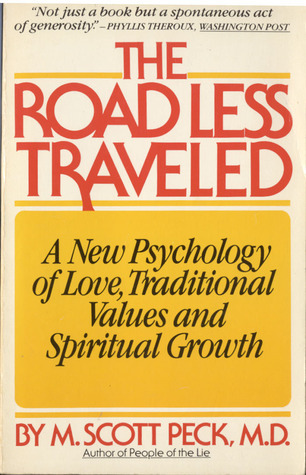
Early in my adulthood, I was encouraged to read M. Scott Peck’s book, The Road Less Traveled. In it, Peck establishes his own definition of love. One that I happen to feel aligns very closely with Jesus’ message. One that also, once again, casts love as a verb.
“I define love thus: The will to extend one’s self for the purpose of nurturing one’s own or another’s spiritual growth.” (M. Scott Peck)
For Peck, love is about extending oneself, about making oneself vulnerable. And this vulnerability has a purpose, and that is to nurture spiritual growth. Peck states that if we are to truly love someone, we will go out of our way to nurture their growth.
Notice too, that he calls us to love ourselves by nurturing our spiritual growth, as well! This also aligns with Jesus. Multiple times Jesus tells us to love others “as we love ourselves.” Even Jesus understood that the call to love as an action can be turned inward. So, if we are to love, we are challenged to perform loving actions toward our enemies, our neighbors, and ourselves.
HAPPY VALENTINES DAY
So, it just so happens that Valentines Day is this week. Do yourself a favor and don’t forget! Additionally, do yourself and your loved ones a favor, and follow Ed’s, Scott Peck’s, and Jesus’ advice: Find a way to live out your love in a meaningful, tangible way that pushes you to extend yourself for someone else’s growth or well-being.
And remember, Love is a Verb.

Lift Your Lamp Beside the Golden Door
by Rev. Racquel Ray, Associate Minister of Congregational Life
In a country where we have declared to be created with inalienable rights to choose life, liberty, and the pursuit of happiness it is remarkable that we should need to talk about the limits of those freedoms. Yet, here we are in the course of human events where we, as a church community, must decide where we stand.
I have made clear from the pulpit that I will not preach or share political viewpoints. I will not express public support for a particular party or person, nor will I publicly condemn any. However, as a member church of the United Church of Christ we are in covenant with our God, our neighbors, and our siblings in Christ. And, sometimes, that calls us toward difficult conversations around issues of social and human justice. And, sometimes, we disagree.
Barrington Congregational Church, UCC is an Open and Affirming Church. We share a visible sign of our [hopefully] visible grace that we are a safe place for members of the LGBTQIA+ community. Our rainbow-colored doors stand as a marquee toward that grace as we stand in covenantal inclusiveness together with those often and recently targeted. If our doors symbolize our commitment toward welcoming ALL PEOPLE and not merely social virtue signaling, then we truly need to commit to our hospitality. How we welcome the stranger, feed the hungry, clothe the naked, and visit the sick are our mandate and ministry.
 I was asked, this week, “What do we do if ICE (U.S. Immigration and Customs Enforcement) comes to our church?” The Southern New England Conference offers these guidelines Resources for Churches Regarding Immigration Enforcement – Southern New England Conference of the UCC .The church is considered a public property and is subject to search by ICE personnel. There is an exception for the private spaces of the church such as private offices. However, the distinction between public and private space is to be litigated after the fact and NOT in the moment of an ICE search. Churches can no longer state that we are private property and not subject to search and I would not expect a church member or worship service volunteer to bear the responsibility to keep armed ICE personnel out of certain spaces.
I was asked, this week, “What do we do if ICE (U.S. Immigration and Customs Enforcement) comes to our church?” The Southern New England Conference offers these guidelines Resources for Churches Regarding Immigration Enforcement – Southern New England Conference of the UCC .The church is considered a public property and is subject to search by ICE personnel. There is an exception for the private spaces of the church such as private offices. However, the distinction between public and private space is to be litigated after the fact and NOT in the moment of an ICE search. Churches can no longer state that we are private property and not subject to search and I would not expect a church member or worship service volunteer to bear the responsibility to keep armed ICE personnel out of certain spaces.
It is the responsibility of each congregation to have conversations NOW and to create response plans before we face any future visits. I feel it is a good idea for BCCUCC to begin conversations and create our own personal response plan around the limits and openness of our hospitality. How will we live our BCCUCC Covenant around welcoming those who are being persecuted?
Before God and these witnesses present, we covenant with God and each other. We dedicate our faith, thought, and actions to love God with all that we are and our neighbors as ourselves. Relying on the help of God, the unfolding reconciling Word, and the Holy Spirit, we join ourselves to this church to take part in its worship and activities, and to strive earnestly for its peace and enlightenment. We covenant and agree to devote ourselves to this faith community that worships God, embraces all people, ministers to one another, works for justice and peace, and renders loving service to God’s world.
Indeed, many of our members are directly affected by current events and many of our wider community will be as well. Thomas Paine said, “These are the times that try men’s souls”. Indeed, even this conversation is trying! And yet as a nation we have the promise on our shores to be a land flowing with milk and honey where generations have entered and read The New Colossus by American poet Emma Lazarus (1849–1887) inscribed under the feet of The Statue of Liberty.
Not like the brazen giant of Greek fame,
With conquering limbs astride from land to land;
Here at our sea-washed, sunset gates shall stand
A mighty woman with a torch, whose flame
Is the imprisoned lightning, and her name
Mother of Exiles. From her beacon-hand
Glows world-wide welcome; her mild eyes command
The air-bridged harbor that twin cities frame.
“Keep, ancient lands, your storied pomp!” cries she
With silent lips. “Give me your tired, your poor,
Your huddled masses yearning to breathe free,
The wretched refuse of your teeming shore.
Send these, the homeless, tempest-tost to me,
I lift my lamp beside the golden door!”
As we navigate the times in which we live, the transitions within our own congregation, and our role in the community, I pray that we have the patience and grace to have these conversations with love and respect for differing viewpoints. I pray that we continue to be a beacon of welcome and hope for those who are yearning for a place to breathe free. Amen.

How do pastoral transitions work?
by Rev. Dr. Dale Azevedo, Sr. Minister
With the recent announcement of my retirement from church ministry, I thought it might be helpful to talk about how pastoral transitions typically work in congregational churches.
Now, every Christian tradition handles a change in pastors differently. In some traditions, like Roman Catholic and United Methodist, the local congregation has little to no say on who their next pastor will be. In these traditions clergy are appointed by a bishop and sent to the local church. In other denominations, like Episcopal and Presbyterian churches, the new pastoral assignment is a joint decision between the congregation, the regional judicatory body, and the individual minister. And in still other denominations, like non-denominational and congregational churches, the pastoral “call” is an independent agreement between the local church and incoming minister. The judicatory body has no formal say in the hiring process. As a member of the United Church of Christ (UCC), BCCUCC is a congregational style church, and therefore makes a hire independent of the larger denomination.
This is not to say that the denomination, or conference, has no role in the selection of BCCUCC’s next pastor. One of the benefits of being in a denomination (a gathering of affiliated congregations) is that the 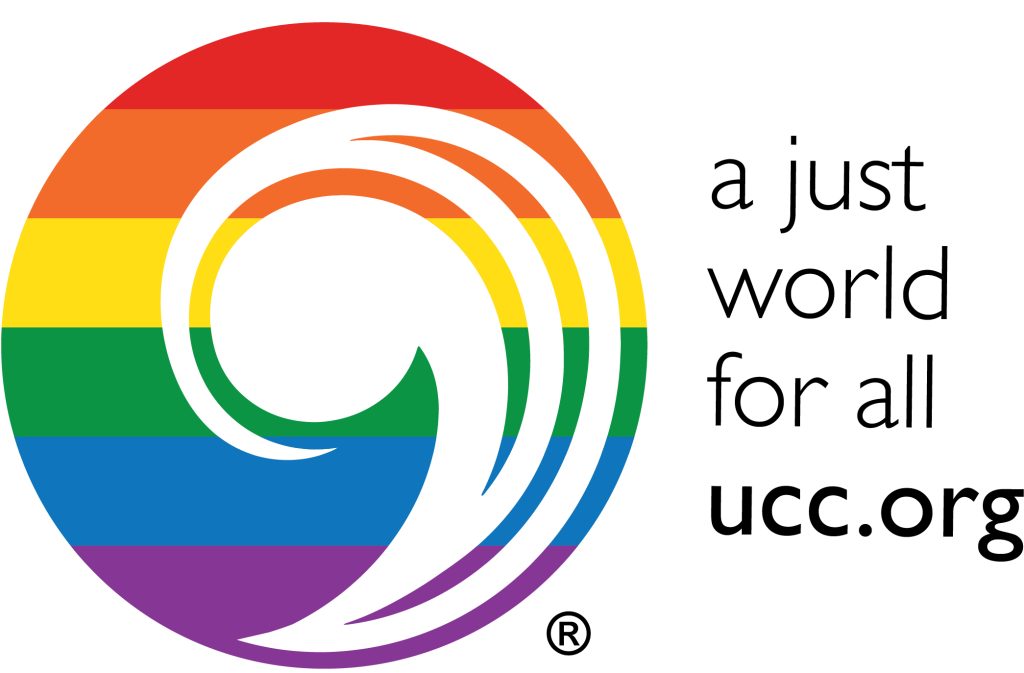 denomination has resources to help the local church. One of the most important resources a UCC conference provides is assistance in the “search and call” process. The denomination credentials and vets (i.e. “authorizes”) candidates for ministry. The national offices provides portals for “authorized” minsters and member local churches to find one another. And finally, the regional conference also provides staff to assist the local church through the sometimes overwhelming process of selecting a new minister. Saying that, in our tradition, the final decision on hiring (or “calling”) a new minister is made solely by the local church.
denomination has resources to help the local church. One of the most important resources a UCC conference provides is assistance in the “search and call” process. The denomination credentials and vets (i.e. “authorizes”) candidates for ministry. The national offices provides portals for “authorized” minsters and member local churches to find one another. And finally, the regional conference also provides staff to assist the local church through the sometimes overwhelming process of selecting a new minister. Saying that, in our tradition, the final decision on hiring (or “calling”) a new minister is made solely by the local church.
So what does this process look like?
(Actually, before I get into what BCCUCC’s process may look like, I need to be clear about something. My role in this process, as the outgoing minister, is very limited. In short, I have no official role in the selection of a new minister and my main responsibility is to “butt out” and allow the church, with support from the denomination, to take the lead in moving forward. So my goal in this blog is to lay out a typical process for transition and how BCCUCC’s by-laws further clarify that process. The Governing Board and Deacons have already begun conversations defining the specifics of BCCUCC’s process and will share more details in the coming weeks and months. They intend to be as transparent as possible about the church’s process and are aware that I am writing this blog as a foundation for their later reporting.)
It is important to first recognize that because we are a congregational style church, the process can be a bit different from one church to the next. This is because each church is governed by their own set of by-laws which governs the process. However, while each church can have differences in their process, there is a common pattern that our churches follow.
In our tradition, it is extremely common, almost universal, that each “settled” pastorate is followed by an “interim” period. An interim pastor typically serves 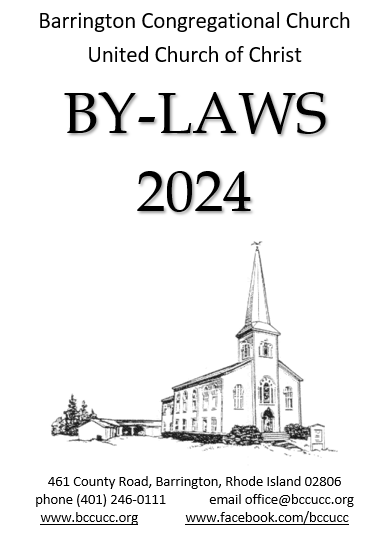 for 1-3 years guiding the church through the process of selecting a new settled minister. The interim minister is often responsible for guiding the local church through a period of discernment and evaluation. The interim will help the church explore questions such as, “Who are we?”, “What is important to us?”, “Who do we want to be?”, “What do we need to change in order to get there?”, and finally, “What are we looking for in a new pastor?” The interim’s job is to come into the church, help the members develop a roadmap for the future, and then step away, allowing the new settled minister to live into that vision with the congregation.
for 1-3 years guiding the church through the process of selecting a new settled minister. The interim minister is often responsible for guiding the local church through a period of discernment and evaluation. The interim will help the church explore questions such as, “Who are we?”, “What is important to us?”, “Who do we want to be?”, “What do we need to change in order to get there?”, and finally, “What are we looking for in a new pastor?” The interim’s job is to come into the church, help the members develop a roadmap for the future, and then step away, allowing the new settled minister to live into that vision with the congregation.
In Article IV.D.3., the BCCUCC by-laws state that in the event of a pastoral vacancy, “[t]he Deacons shall ensure that pastoral care and preaching is provided until a successor is called…” This means that in the event of short term vacancies, the Deacons are responsible to find pulpit supply and pastoral care support. In permanent vacancies, such as when I leave, this indicates that the Deacons are responsible for working with the conference to find a suitable interim minister to guide the congregation until a settled pastor is called.
Once an interim pastor is in place, and the congregation feels it is ready to begin the search for the new settled pastor, a search committee is formed. Search committees are unique to each individual church, but often try to represent a cross-section of the congregation’s membership. The search committee works with the regional conference leadership to move through the search and call process. This process begins the with the writing of a “church profile” and culminates with a formal call to a new minster. The entire process often takes 12-18 months. In some instances it can take longer.
In our by-laws, Article IV.D.2.a. states that the Deacons are largely responsible for selecting the search committee. The qualifications of the members of the committee are also laid out in this paragraph as well as a note that the search committee members must be approved by a congregation-wide vote before their work can begin.
Writing a church profile is a time consuming process. The search committee tries to condense the entire history and present reality of the church in a 20-30 page document. The document covers past/present conflicts, recent successes, financial and demographic details, as well as the hopes, dreams, and faith of the congregation. It is not an easy task and takes many hands and brains to make it work.
When the profile is complete, it is uploaded to the denominational portal and pastors are invited to apply. The search committee then sifts through all the applicants and begins the interview process. This process can take months as there are normally a series of interviews, beginning remotely and later moving to in-person interviews. There are a lot of schedules to juggle and travel arrangements to make, so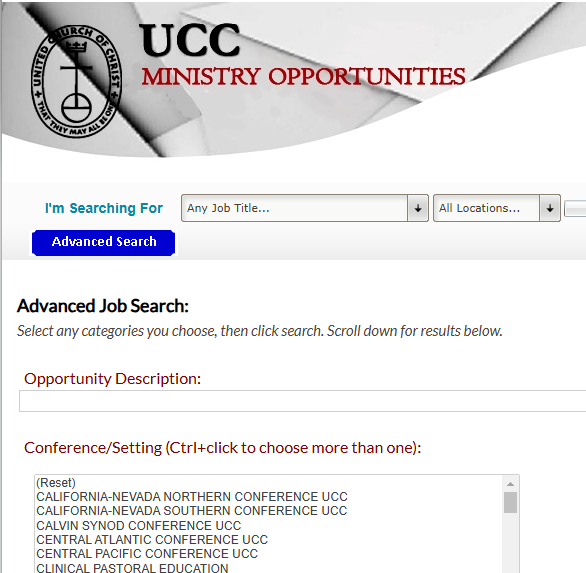 this process often moves much slower than everyone would appreciate. However, this can actually be a blessing as it can be difficult for the search committee members to come to consensus on a candidate, and time, conversation, and give-and-take are often required.
this process often moves much slower than everyone would appreciate. However, this can actually be a blessing as it can be difficult for the search committee members to come to consensus on a candidate, and time, conversation, and give-and-take are often required.
Once a final candidate is selected by the search committee, they arrange for what is called a “candidating weekend.” This is a time where the chosen candidate comes and stays locally with the church for an entire weekend meeting various leaders and constituents of the church and learning more about the community. The weekend culminates on Sunday morning when the candidate leads worship and preaches. This service is immediately followed by a congregational meeting in which the congregation votes whether or not to accept the candidate and “call” them to be the next settle minister. This sounds bizarrely public to many people and can also be a wildly stressful experience for everyone involved. However, the hope is that if the search committee and candidate have done their work well leading up to the vote, there are no surprises. Although it does happen, rarely.
This vote is authorized in Articles III.A. and IV.D.3. in BCCUCC’s by-laws.
This rather long blog, is just a quick snapshot of what the typical search and call process looks like. AS I stated above, the process the BCCUCC will eventually take, may ultimately be different than this. However, this should give everyone a basic understanding of the months to come. The Governing Board and Deacons are hard at work planning for that future, and look forward to sharing with you more information as I becomes available. In the meantime, Laura Ward (Governing Board Chair), Pat Stoddard (Deacon Chair) as well as all other members of their groups, are available to talk and answer any questions you may have.


